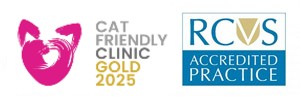Submitted by J. Hudson on Tue, 25/06/2024 - 15:39
Myasthenia gravis (MG) in dogs, characterised by skeletal fatigable muscle weakness, often presents alongside or as megaesophagus alone. The gold standard for diagnosing MG is acetylcholine receptor (AChR) antibody testing via radioimmunoassay (RIA). However, some dogs suspected of having MG test negative on RIA. These cases may involve low-affinity antibodies, similar to some human MG cases.
We are developing canine cell-based assays to detect these low-affinity antibodies. Enhancing detection accuracy will improve diagnosis and treatment outcomes.
How You Can Help
If you encounter dogs suspected of MG but with negative RIA results, please contact us. We offer half-price first consults at Queen’s Veterinary School Hospital for these cases, pending confirmation via a phone call with our Neurology team (see dedicated webpage here for more details). Inclusion criteria include muscle fatiguability improving with rest, with or without regurgitation.
Research and Collaboration
This project, funded by Petsavers and Petplan Charitable Trust, aims to refine diagnostic methods. While immediate results won't be available, your participation will contribute to better future diagnoses and treatments for MG and megaesophagus in dogs.
For more information or to refer a case, email us at myasthenia@vet.cam.ac.uk. Together, we can improve canine healthcare.


